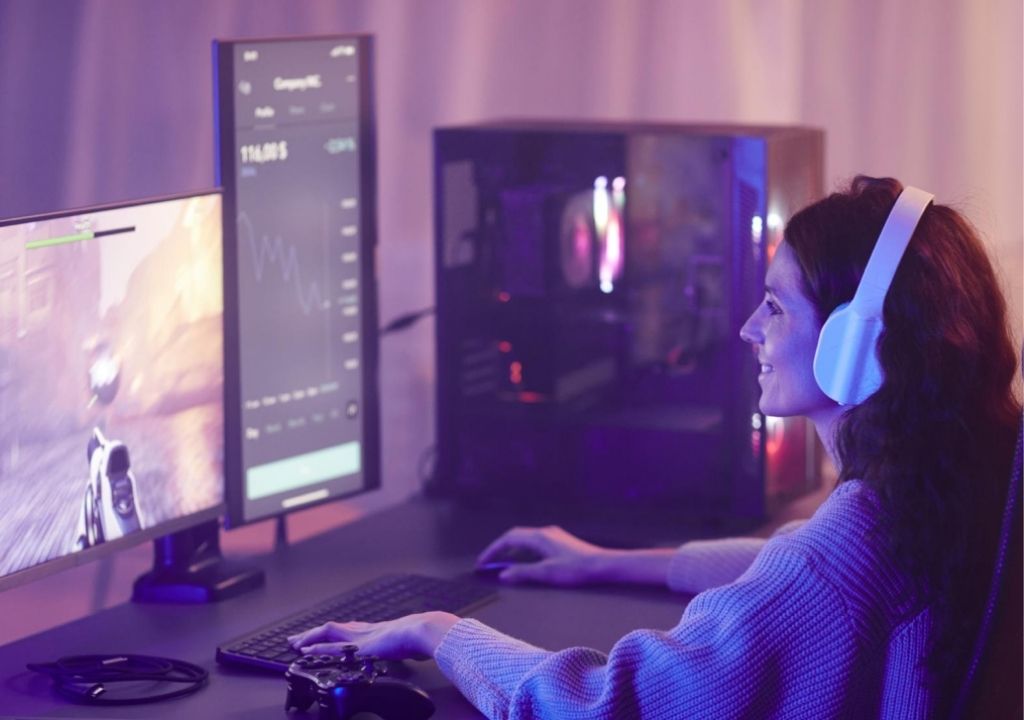 The Impact of Artificial Intelligence on Game Development in 2025
The Impact of Artificial Intelligence on Game Development in 2025
Meta Description: Explore how artificial intelligence (AI) is revolutionizing game development in 2025, enhancing player experiences and transforming the gaming industry.
Introduction
Artificial intelligence (AI) has become a cornerstone of technological innovation, influencing various sectors, including healthcare, finance, and entertainment. In 2025, the gaming industry stands at the forefront of this AI revolution, leveraging advanced algorithms and machine learning to create more immersive, responsive, and personalized gaming experiences. This article delves into the multifaceted impact of AI on game development, examining how it shapes game design, player engagement, and the industry’s future.
AI-Driven Game Design
Procedural Content Generation
One of the most significant advancements in game development is procedural content generation (PCG). AI algorithms can autonomously create expansive game worlds, levels, and scenarios, reducing the manual workload on developers and ensuring each player’s experience is unique. Games like No Man’s Sky have pioneered this approach, offering virtually infinite, procedurally generated universes for players to explore.
Adaptive Difficulty and Personalized Experiences
AI enables games to adapt to individual player skill levels and preferences. By analyzing player behavior, AI systems can adjust game difficulty, offer personalized challenges, and even modify narratives to align with the player’s choices and playstyle. This adaptability enhances player satisfaction and prolongs engagement.
Enhancing Non-Player Characters (NPCs)
Intelligent NPC Behavior
Traditional NPCs often follow scripted behaviors, leading to predictable interactions. With AI, NPCs can exhibit more human-like behaviors, learning from player interactions and adapting their responses accordingly. This evolution results in more dynamic and engaging gameplay, where NPCs can surprise players with their actions, making the game world feel more alive.
Natural Language Processing (NLP)
Advancements in NLP allow players to communicate with NPCs using natural language, enhancing immersion. Players can engage in meaningful conversations with game characters, influencing storylines and outcomes based on their dialogue choices. This level of interaction adds depth to storytelling and player agency.
AI in Quality Assurance and Testing
Automated Bug Detection
Game testing is a critical phase in development, traditionally requiring extensive human resources to identify and fix bugs. AI-driven tools can automate this process, rapidly detecting anomalies and performance issues, thereby accelerating development cycles and reducing costs.
Player Behavior Prediction
By analyzing vast amounts of gameplay data, AI can predict player behavior patterns, identifying potential issues before they arise. This predictive capability allows developers to proactively address balance issues and design flaws, leading to a more polished final product.
Ethical Considerations and Challenges
Data Privacy
The integration of AI necessitates the collection and analysis of player data to function effectively. Ensuring this data is handled responsibly, with respect for privacy and consent, is paramount. Developers must implement robust data protection measures to maintain player trust.
AI Bias and Fairness
AI systems can inadvertently perpetuate biases present in their training data, leading to unfair or unbalanced gameplay experiences. Addressing these biases is crucial to ensure all players have an equitable gaming experience.
The Future of AI in Gaming
Emerging Technologies
The convergence of AI with other emerging technologies, such as virtual reality (VR) and augmented reality (AR), promises even more immersive experiences. Imagine AI-driven characters in VR environments that react to player emotions and actions in real-time, creating unparalleled levels of immersion.
AI as a Creative Partner
Beyond technical applications, AI is becoming a creative collaborator, assisting in story development, music composition, and visual design. This partnership allows for the exploration of new creative horizons, resulting in innovative and diverse game content.
Conclusion
Artificial intelligence is undeniably transforming game development in 2025, offering tools and capabilities that enhance creativity, efficiency, and player engagement. As AI continues to evolve, it will undoubtedly unlock new possibilities, shaping the future of gaming in ways we are only beginning to imagine.
